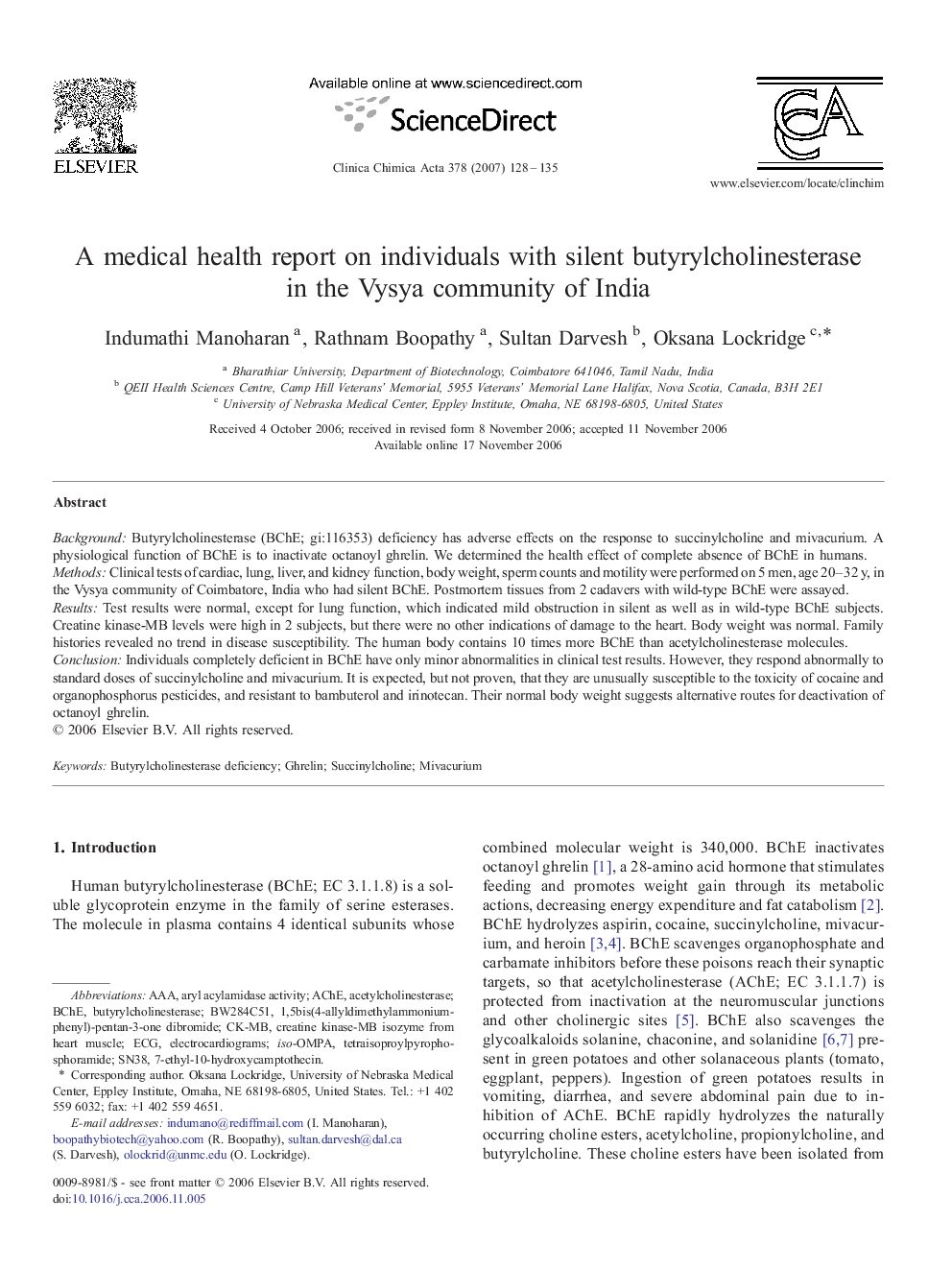| Article ID | Journal | Published Year | Pages | File Type |
|---|---|---|---|---|
| 1967651 | Clinica Chimica Acta | 2007 | 8 Pages |
BackgroundButyrylcholinesterase (BChE; gi:116353) deficiency has adverse effects on the response to succinylcholine and mivacurium. A physiological function of BChE is to inactivate octanoyl ghrelin. We determined the health effect of complete absence of BChE in humans.MethodsClinical tests of cardiac, lung, liver, and kidney function, body weight, sperm counts and motility were performed on 5 men, age 20–32 y, in the Vysya community of Coimbatore, India who had silent BChE. Postmortem tissues from 2 cadavers with wild-type BChE were assayed.ResultsTest results were normal, except for lung function, which indicated mild obstruction in silent as well as in wild-type BChE subjects. Creatine kinase-MB levels were high in 2 subjects, but there were no other indications of damage to the heart. Body weight was normal. Family histories revealed no trend in disease susceptibility. The human body contains 10 times more BChE than acetylcholinesterase molecules.ConclusionIndividuals completely deficient in BChE have only minor abnormalities in clinical test results. However, they respond abnormally to standard doses of succinylcholine and mivacurium. It is expected, but not proven, that they are unusually susceptible to the toxicity of cocaine and organophosphorus pesticides, and resistant to bambuterol and irinotecan. Their normal body weight suggests alternative routes for deactivation of octanoyl ghrelin.
